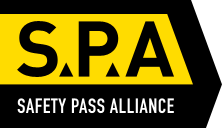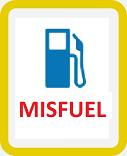Safety First: The Petrol Forecourt Safety Passport – providing competence training for over 24 years.
As forecourts evolve the imperative to maintain safety standards has never been greater. People remain vital to the operation of all sites, even unmanned, and there are a wide range of people who need to be able to deliver their roles safely. The Forecourt Safety Passport (FSP), created in 2001 and commonly known at that time as the “UKPIA Pass” (UKPIA being the former name of Fuels Industry UK) has delivered training to thousands of people to ensure that everyone working on a site has an understanding of the unique safety challenges faced on forecourts.
At Safety Pass Alliance, we design and implement National Safety Passport Training Schemes and have worked to deliver the training on the FSP for many years.
The start of the scheme
While not a statutory requirement for people to work on a site, to improve safety, the major oil companies and some supermarkets have, since 2001, required contractors to undergo health and safety training before being allowed to work on a filling station. Many independent site owners now also choose to make it a prerequisite to work on their site.
To discourage the proliferation of different approaches to safety training by individual forecourt operators, a common course was developed, and the forecourt safety passport was born. The Safety Pass Alliance in conjunction with Fuels Industry UK (UKPIA) and contractors, developed the scheme to ensure that workers in the industry and particularly contractors working on forecourts are trained to meet specific standards.
The scheme has been highly successful. Twenty-five years on from its launch, over 75,000 passports have been issued to contractors attending the two-day training course and there are now twenty-five training providers across the UK offering the scheme.
Forecourt Safety Passport: Our Standards in Action
The forecourt safety pass has, therefore, formed the foundation of competence for anyone working on modern forecourts. Now authored in collaboration with the Petroleum Retail National Safety Group (PRNSG) on which the major fuels trade associations all sit, it ensures training in hazard recognition—from fire and explosion to electrical risks and flammable gases—as well as emergency response protocols.
Available for anyone who will be undertaking works on, in or around a forecourt site, the FSP is a two-day course which covers the core risks and mitigations for working safely on the UK’s forecourts.
Those who take the course gain the proficiency to identify, understand and work safely around the risks during both operational periods, giving reassurance to site safety leads that contractors and others on site are aware of safety risks, best practice, and how they can contribute to the ongoing safety of that site during works.
Due to the success of remote delivery for the renewal course the 2-day Core and Petrol training is now also available to be completed virtually. Adding another good dimension and option to the scheme, providing delegates with alternative means of obtaining their safety passport. All training providers continue to deliver classroom-based training.
Adapting for Alternative Fuels
As ever, regulations change, and guidance develops. As a result, the passport is only valid for three years after which a one-day refresher is required. Many who have received passports choose to renew their training and everyone is urged to check their passport expiry date to ensure it is still valid. To ensure continuity, contractors are able to renew their passport for a full additional three years up to six months before the expiry date on the card.
The course curriculum itself is updated every 3 years and aligned with essential guidance (the “Blue Book” and “Red Guide”) and statutory obligations like DSEAR and the Petroleum Regulations, our training ensures operatives are equipped to manage both traditional fuels and future vectors. The latest course review is being released to all accredited training providers November 2025.
What to do next:
The Safety Passport Alliance aims to uphold the highest safety standards throughout this energy transition. Our Forecourt Safety Passport continues to lead the way—certifying operatives who carry competence and confidence into fast-changing environments.
If you are a site operator, we encourage you to check that those people undertaking works on your site have a good understanding of the risks of doing so – asking if they have the forecourt safety passport is an easy way to reassure yourself.
If you are a contractor, or thinking about moving into that business, we would encourage you and your team to come along to one of our training events. Details can be found at https://www.safetypassports.co.uk/courses/petrol-retail/



















